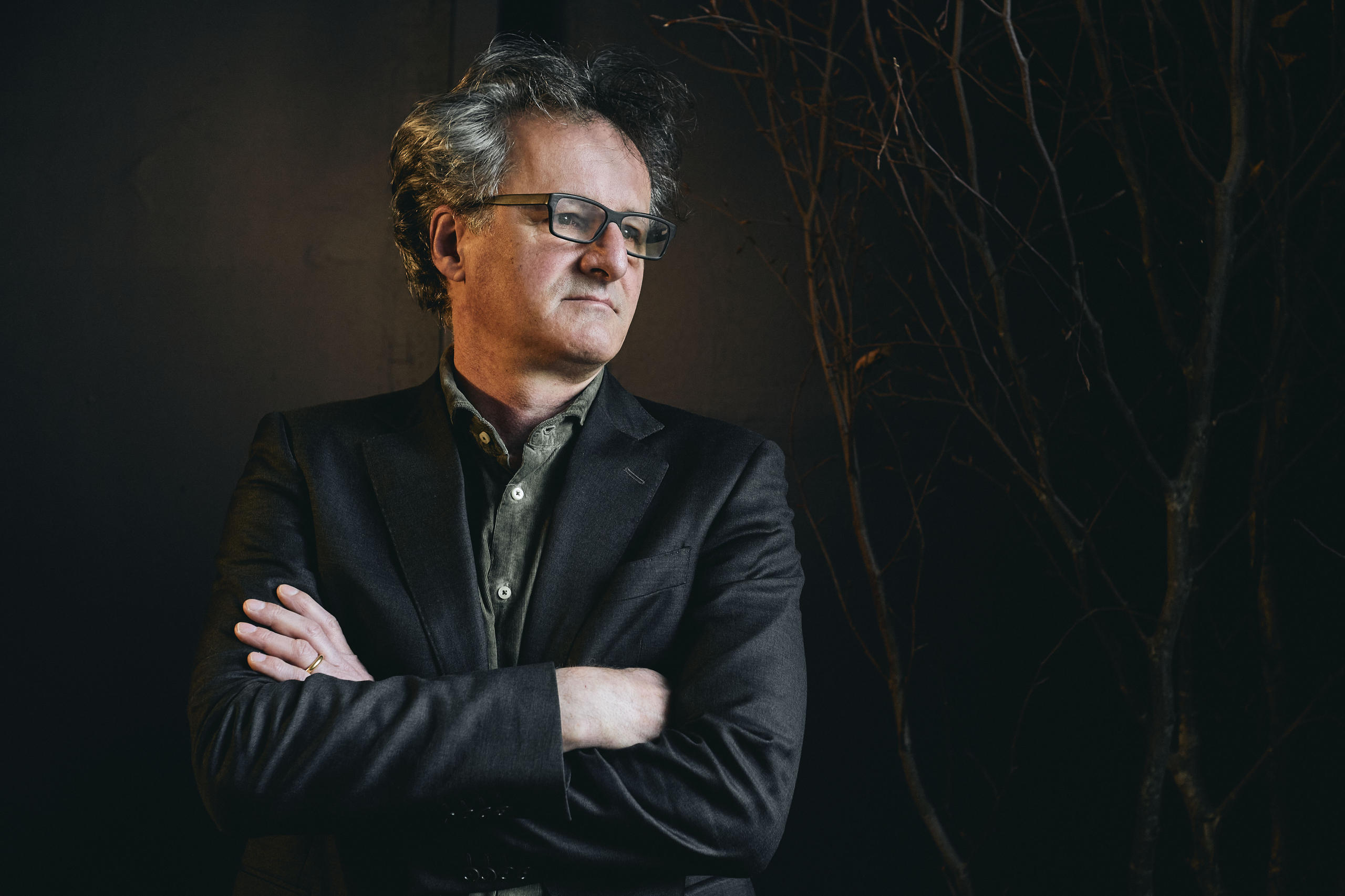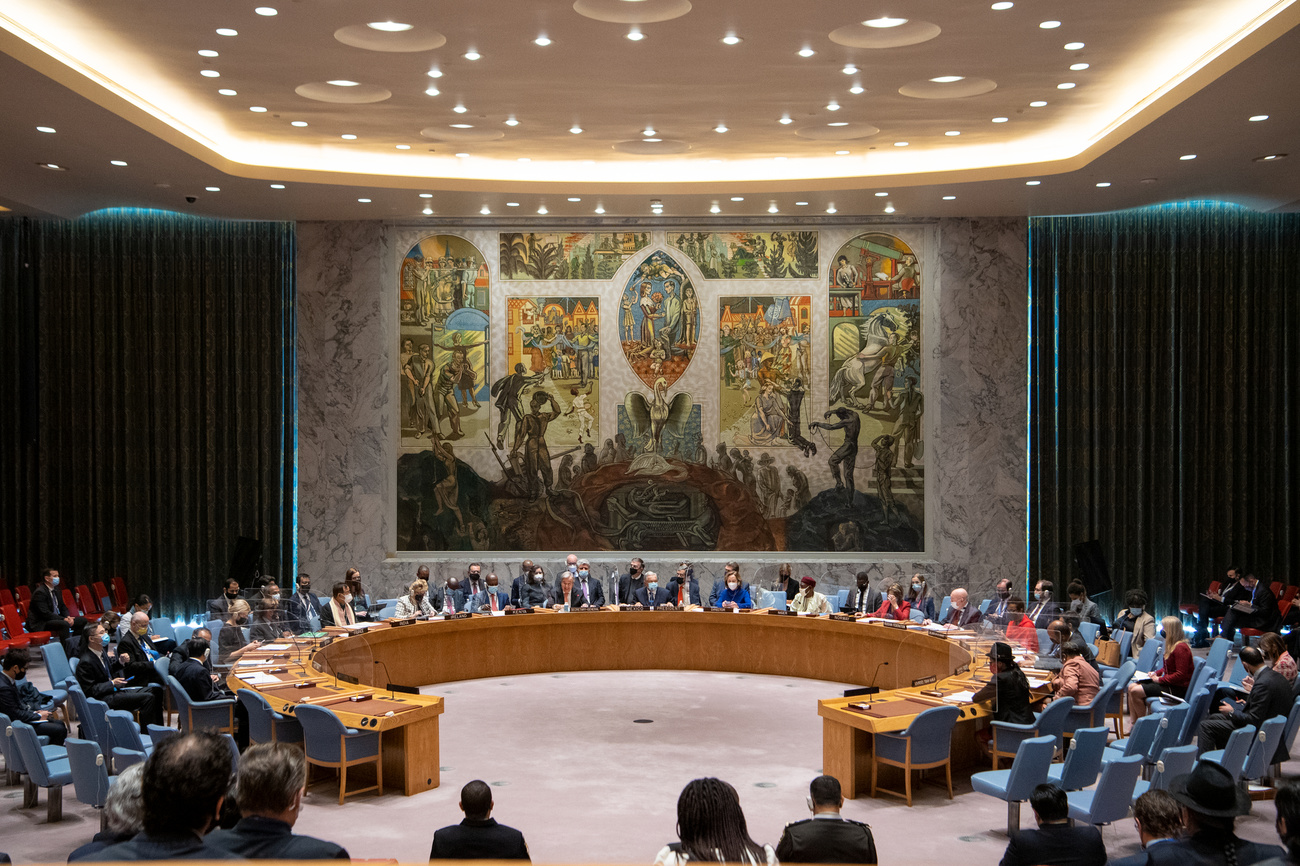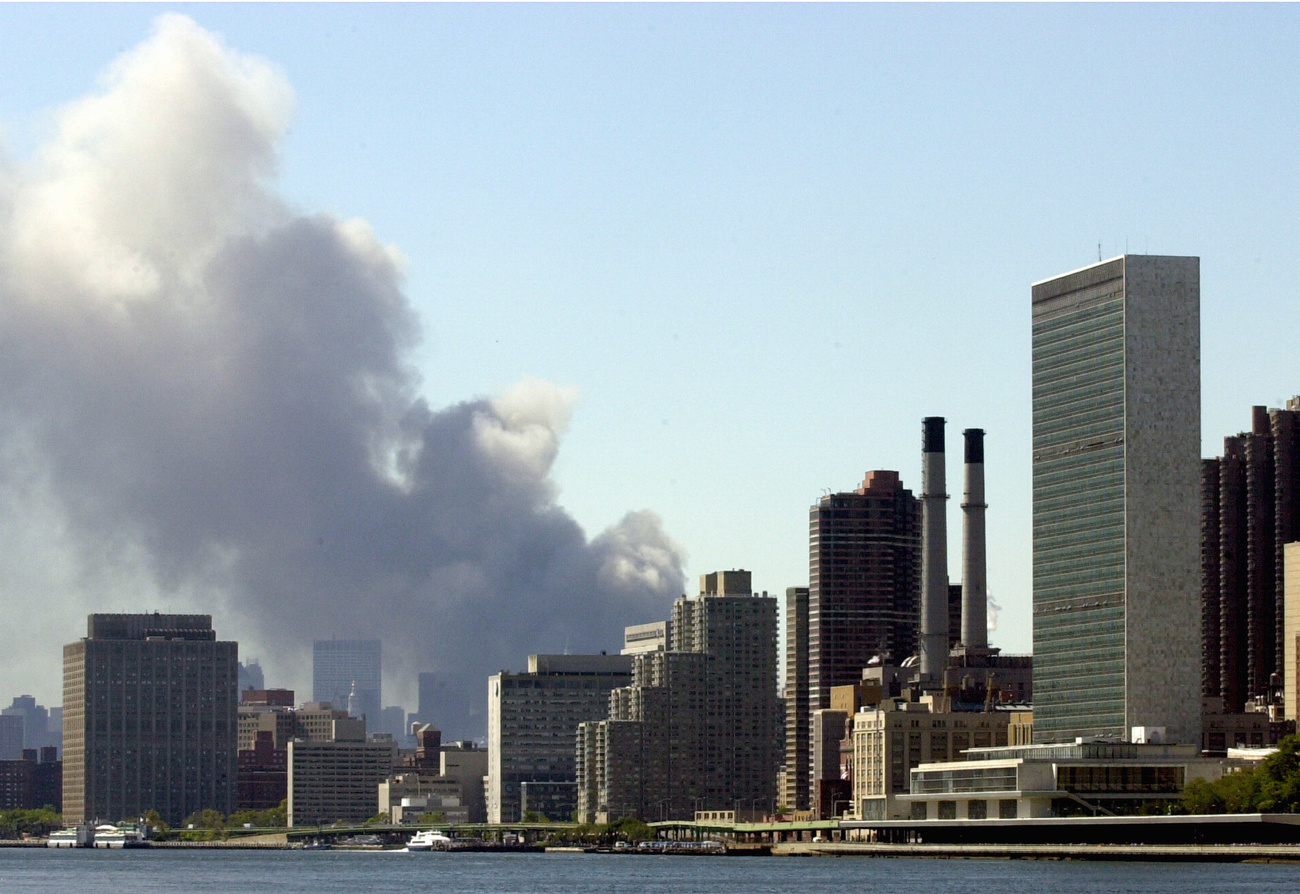
Refereeing the war on terror

Swiss judge Daniel Kipfer spent three years overseeing the United Nations’ main terrorism list, ensuring that the rule of law prevailed in a highly politicised environment.
It was in fact his final case that bothered Kipfer, 61, the most. An influential political figure from an Arab state was accused of supporting the terrorist organisation al-Qaeda. He was placed on a sanctions list, his bank accounts were frozen, he could no longer travel, and he himself was branded a terrorist.
Shortly afterwards, the man approached Kipfer, the ombudspersonExternal link for the UN sanctions committee against Islamic State and al-Qaeda, requesting to have his case reviewed, with a view to being taken off the list. The ombudsperson is just about the only recourse accused people have when they find themselves in such a situation.
“It was clear to me from the outset that something wasn’t right,” Kipfer says. The information at his disposal was all from secret service sources – its origin could not be verified, and its quality was questionable. Kipfer started an investigation. He travelled to the region and met the man in question. He spoke to high-ranking officials in political and military spheres, consulted experts at UN headquarters in New York and assessed publicly available information. “The result was clear: there was nothing there.”
Judge and philosopher
Kipfer had served as president of Switzerland’s Federal Criminal Court in Bellinzona before he started his new jobExternal link in New York in 2018. For the career judge with a doctorate in philosophy this was a step into the unknown. The sanctions committee is not a court of law and the ombudsperson is not a judge. It’s more a supervisory body that investigates whether sanctions listing is justified in particular cases.

No legal decision is made as to whether the original charge of terrorist involvement is justified or not – so no compensation can be claimed. The only point at issue is whether the person in question is a terrorist risk and whether there is still reason, at the time of the investigation, to have them on the list.
The case of the Arab politician mentioned at the outset was exceptional, Kipfer emphasises. In most cases Kipfer dealt with people who did either support or belong to a terrorist organisation. It is important to note, he says, that a sanctions listing is not a punishment for a crime but rather a preventative measure.
“Preventative measures must by definition be time-limited and are to be revoked when they are no longer required. They are not like a sentence,” he explains.
Unfortunately not all members of the sanctions committee see it that way, he says. “Some of them would argue that anyone put on this list for being a terrorist has to stay on it, because they could be a risk in the future and indeed for the rest of their life.”
Kipfer finds this unacceptable. “That way, the accusation of terrorism can be used to justify any state action,” he says.
‘Social death’
The global war on terrorism in the past two decades has affected the uneasy balance between state security demands and individual rights. The complexity of the field can be seen in the development of the sanctions list.
Its origin can be traced back to the advent of Islamist terrorism on the global stage in the 1990s. It was triggered by the attacks on the American embassies in Kenya and Tanzania in 1998, which brought Osama bin Laden and al-Qaeda to the particular attention of Western intelligence agencies. With Resolution 1267External link issued in 1999, the Afghan Taliban leadership was sanctioned for providing safe haven to bin Laden and other terrorists.

More
How the UN has helped counter terrorism since 9/11
This sanctions list has seen many changes over the years, but it provides a basis for what are called “targeted sanctions”: those responsible for terrorism should be affected in a targeted manner, rather than having states (and their whole populations) hit with blanket embargos.
These individualised measures were seen as progress compared to the embargos on states. However, they were also questionable because those affected had no right to any judicial review. After 9/11 and the real start of the war on terrorism the list was soon expanded considerably, and people were landing on the list who clearly shouldn’t have been on it. People’s lives and careers were destroyed. The Swiss former Council of Europe representative Dick Marty described their situation as “social death”.
For the first time, the creation of the ombudsperson role in 2009 provided some guarantee of due process for people placed on the list. Kipfer’s two predecessors managed to deal with some of the more problematic cases and introduced more discipline into the activities of the sanctions committee. Quality and transparency benefited considerably as a result.
Nevertheless Kipfer found himself in a highly politicised environment. At the UN, counter-terrorism is a major political concern, and large sums of money are invested in it. The ombudsperson is just a small cog in this whole system, subject to pressure. Kipfer found himself acting as defender and prosecutor, judge and diplomat all rolled into one, and he only had a staff of two people.
“The disparities in the situation are pretty obvious,” he says. What’s more, the ombudsperson isn’t even a UN employee but is given a five-year mandate.
Legal fig leaf?
Is the ombudsperson position just a fig leaf, providing some legitimacy to a mechanism that would otherwise be highly questionable in terms of the rule of law? Kipfer denies that. Within the sanctions committee, all 15 members have to vote against an ombudsperson’s decision to overturn it – the only such arrangement in the UN.
“Until now, in a hundred cases or so, the ombudsperson’s recommendation has always been accepted, though some states have opposed it strongly. That is a sign of the real strength and power that this institution possesses,” he says, adding that the people who have had sanctions on them lifted would agree.
Kipfer admits to a slight ambivalence, though. The whole idea of an individual sanctions committee remains problematic, he believes, and whether the UN Security Council is justified in imposing such sanctions could not be reviewed by a court of law. When it comes to counter-terrorism, the primacy of politics over basic human rights is all too apparent.
More
He wonders what the alternative could be. “In the first ten years of its existence, people were ending up on this list without any checks and balances in place and without any opportunity to defend themselves. I think the current situation is definitely better, even if improvements in the protection of basic human rights could – and should – still be made.”
The human factor
The review procedure available is not an easy way out for people on the list. In two-thirds of cases Kipfer recommended taking them off the list, but explicitly not in the other cases. Amazingly, he has been thanked by people he continued to classify as a security risk.
“The ombudsperson is a human face in a system that often seems Kafkaesque,” he explains. To be interviewed, to be allowed to put forward one’s own arguments, to feel one is taking part in a reasonable investigative procedure – this all means a person is more likely to accept the review decision.
A few people insist on denying their past, Kipfer says. “Yet many of them are at a different point in their lives now. They’ve left these structures behind; sometimes they are doing an ordinary job and have a family.” In such cases he says it makes no sense to maintain the sanctions, as it would with radicalised fanatics and violent criminals.
Kipfer says it is harder to come to a decision in the case of, say, financiers from the Gulf region who have drawn attention to themselves by suspicious flows of money. At present, some 400 natural and legal persons are on the sanctions list.
In December 2021 Kipfer resignedExternal link and returned to the Swiss Federal Criminal Court. This was due to a variety of personal and institutional factors.
What he found problematic was the institutional position of the ombudsperson within the UN. Pensions, insurance and the reporting relationship of the ombudsperson to the Secretary-General’s office have not been settled, or not sufficiently, and the mandate is granted only once, for a five-year term. Kipfer says there is urgent need for improvement here, but in the sanctions committee and the Security Council there has been no progress – “it’s just not a priority”. His successor, who has not yet been appointed, will inherit these issues.
Kipfer has some vivid memories from his encounters with people on the job. He found the disparity of viewpoints on terrorism and counter-terrorism striking. He said that in practically every interview “the war in Iraq, which was against international law, was interpreted as a personal attack on one’s culture and religion which one had to fight”.
Also, the devastating mass psychological effects of extra-judicial killings in drone warfare were too little understood in the West, he says. “You should never underestimate how differently the world looks, depending on where you are looking at it from.”
(Translated from German by Terence McNamee)
Youssef Nada, an Egyptian-Italian member of the Muslim Brotherhood, ended up on the UN terrorism list after 9/11 as an alleged financier of al-Qaeda. It took years before the sanctions on him were lifted – although nothing was ever proved against him. You can read his story here:

More
The bizarre case of Youssef Nada and Switzerland’s role in the ‘War on Terror’

In compliance with the JTI standards
More: SWI swissinfo.ch certified by the Journalism Trust Initiative









































Join the conversation!